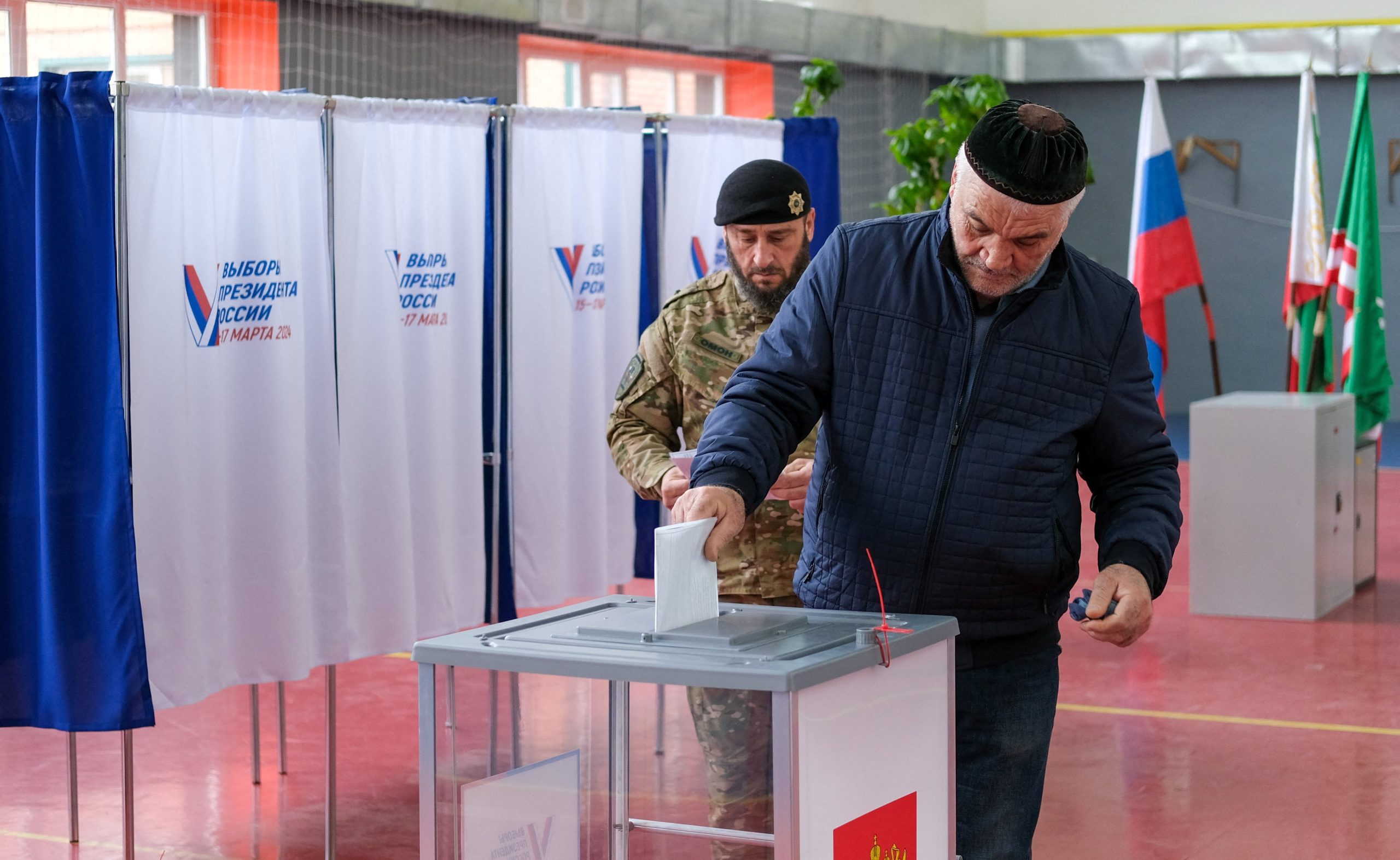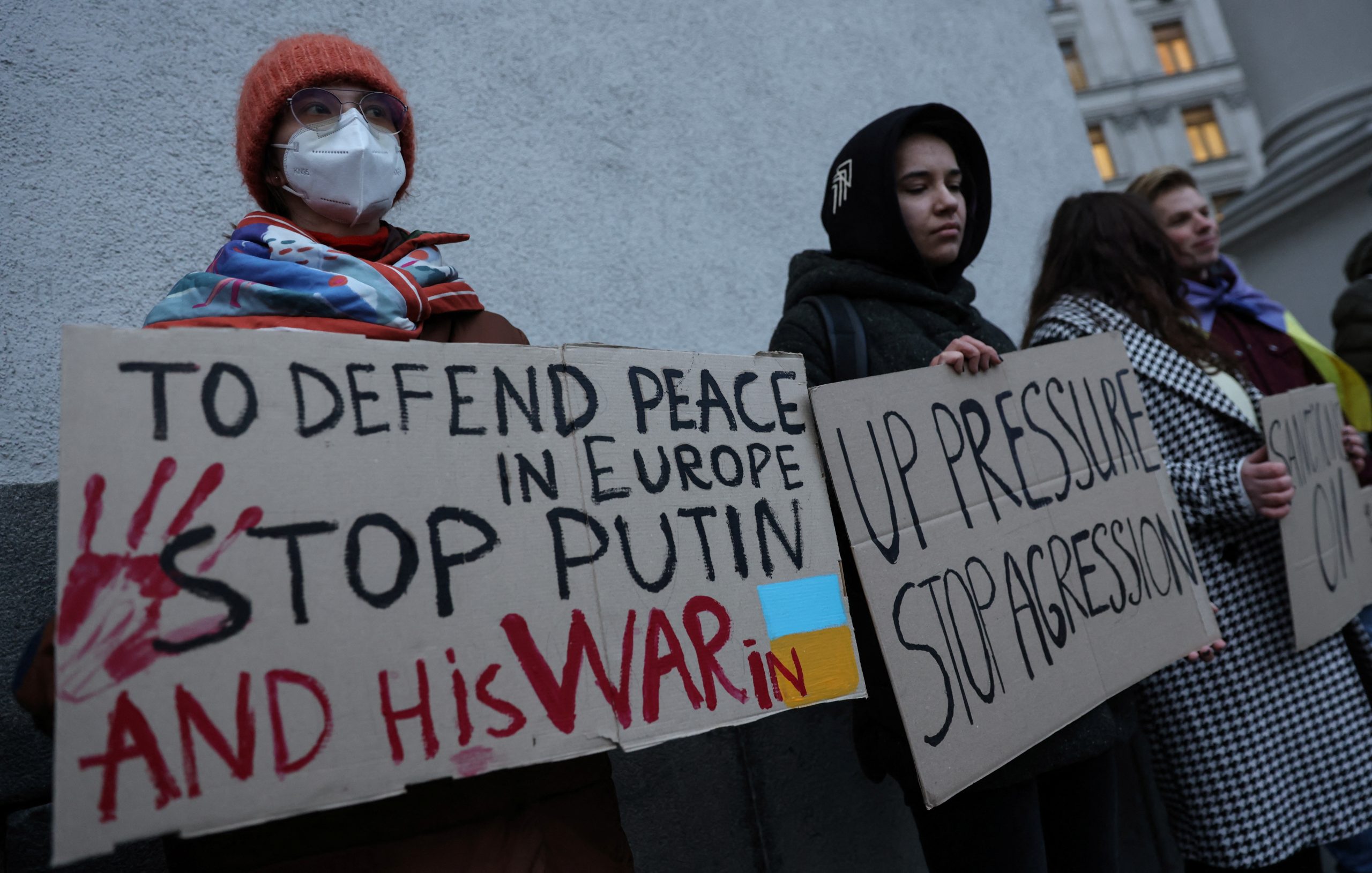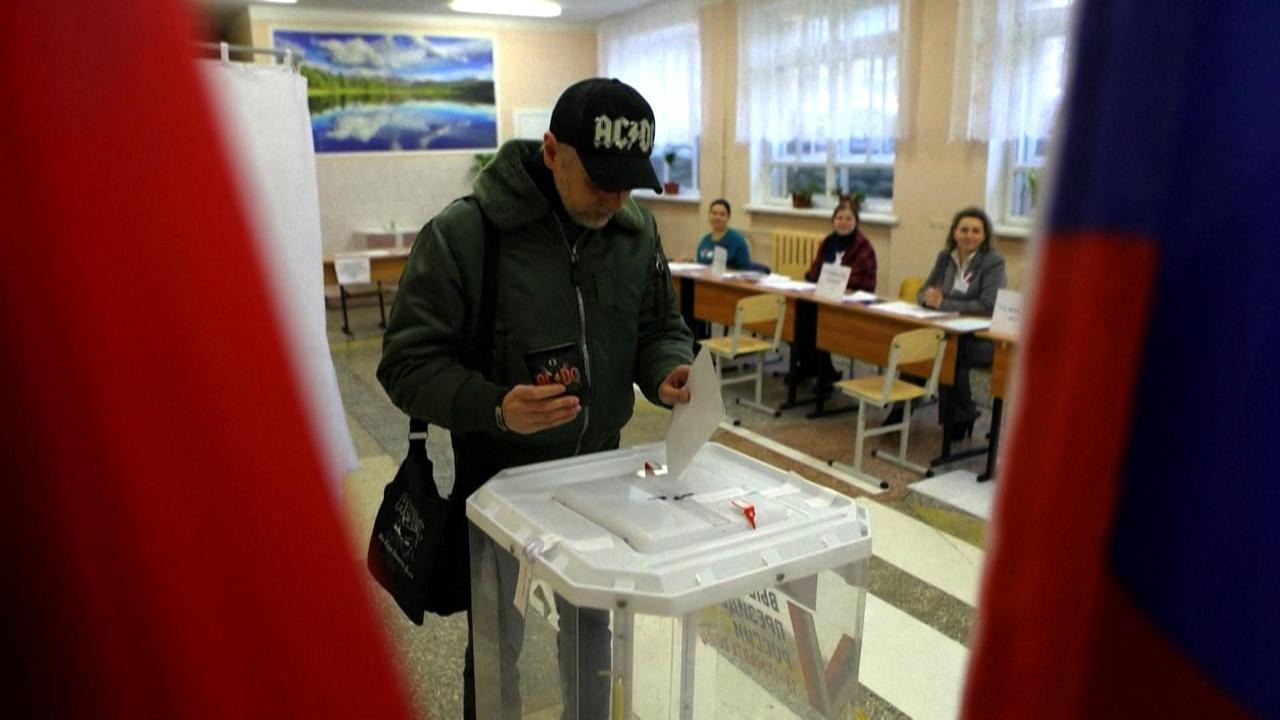Photos and videos circulating on social media have revealed widespread participation in the “Noon Against Putin” demonstration across Russia.
This movement has gained traction amidst ongoing presidential elections, where incumbent President Vladimir Putin faces accusations of authoritarian control and electoral manipulation.
The “Noon Against Putin” initiative urges Russian citizens to converge at polling locations simultaneously around noon, demonstrating opposition to Putin’s regime while navigating the country’s stringent laws.
The movement encourages voters to exercise their rights in various ways, such as supporting non-Putin candidates, spoiling ballots, or abstaining from voting altogether.

Russian Election Voting (Credits: Reuters)
Reports and footage shared online depict long queues forming outside polling stations, illustrating the widespread engagement in the protest.
Anton Gerashchenko, a former Ukrainian official, shared videos from cities like Almaty, Astana, and Yerevan, showcasing massive lines extending down the streets. Reports also highlighted significant turnouts in regions across Russia, with residents expressing their motives for participating.
Russian communities abroad joined the movement, with reports of substantial gatherings in countries like Kazakhstan, Armenia, Switzerland, Finland, Thailand, the Netherlands, and Montenegro.
These demonstrations signify the global reach and resonance of the “Noon Against Putin” movement, reflecting the concerns and dissent among Russian expatriates worldwide.

Russian Election Protest Against Voting Putin (Credits: CBS News)
However, Russian authorities cautioned citizens about participating in the protest, warning of potential arrests and severe penalties, including up to eight years in jail for engaging in anti-Putin rallies.
Despite these risks, the visible turnout underscores the determination of individuals to voice their opposition to Putin’s leadership and demand greater accountability and democracy in Russia.
Newsweek contacted the Kremlin for comment on the demonstrations, highlighting the movement’s significance and implications for Russia’s political landscape.
As the presidential elections unfold and the “Noon Against Putin” movement gains momentum, the international community watches closely, anticipating the outcome and its repercussions for the future of Russian governance and democracy.























